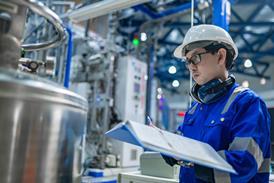- Home
- About
Economic Reports
The CIA gathers industry insights through a quarterly business survey to advocate for our members’ interests with policy makers, regulators and other stakeholders.
Read more
- Our focus
Sustainable Health Metrics 2024
The CIA is proud to announce the launch of the new Sustainable Health Metrics Tool.
Read more
- The Chemical Industry
The Chemical Industry
The chemical and pharmaceutical industry is fundamental to modern society. With an immense variety of products, from vital medicines and foods, the construction of buildings, to transport and leisure, the industry truly does have an impact on virtually every aspect of our daily lives.
Read more
- Events
- News
- Become a member

Already a member? SIGN IN
Contact the CIA to join this network
Joining the CIA offers access to business development support, a programme of in-person and digital events, informed knowledge and expertise in specialist areas such as supply chain excellence, procurement and R&D funding.
Membership benefits extend to your whole organisation.
Advice & Guidance
Providing business support by reporting on the latest policy developments, technical application of legal requirements and sharing good practice.
Exposure
Extend your reach through our exclusive networking events, sponsorship and our digital CIAMatters magazine only available to members. .
Knowledge Sharing
We keep our members informed and empowered through timely updates, reports, and resources, covering industry trends, best practices, and policy developments that impact their operations.

Contact the Chemical Industries Association
Contact UsThe Chemical Industries Association is the organisation representing and advising chemical and pharmaceutical companies located across the UK. Our core membership is a diverse mix of chemical and pharmaceutical companies operating within the UK
Chemical Industries Association
Kings Buildings,
Smith Square, London
SW1P 3JJ
- Cookies
- Privacy Policy
- © 2024 Chemical Industries Association
Site powered by Webvision Cloud




